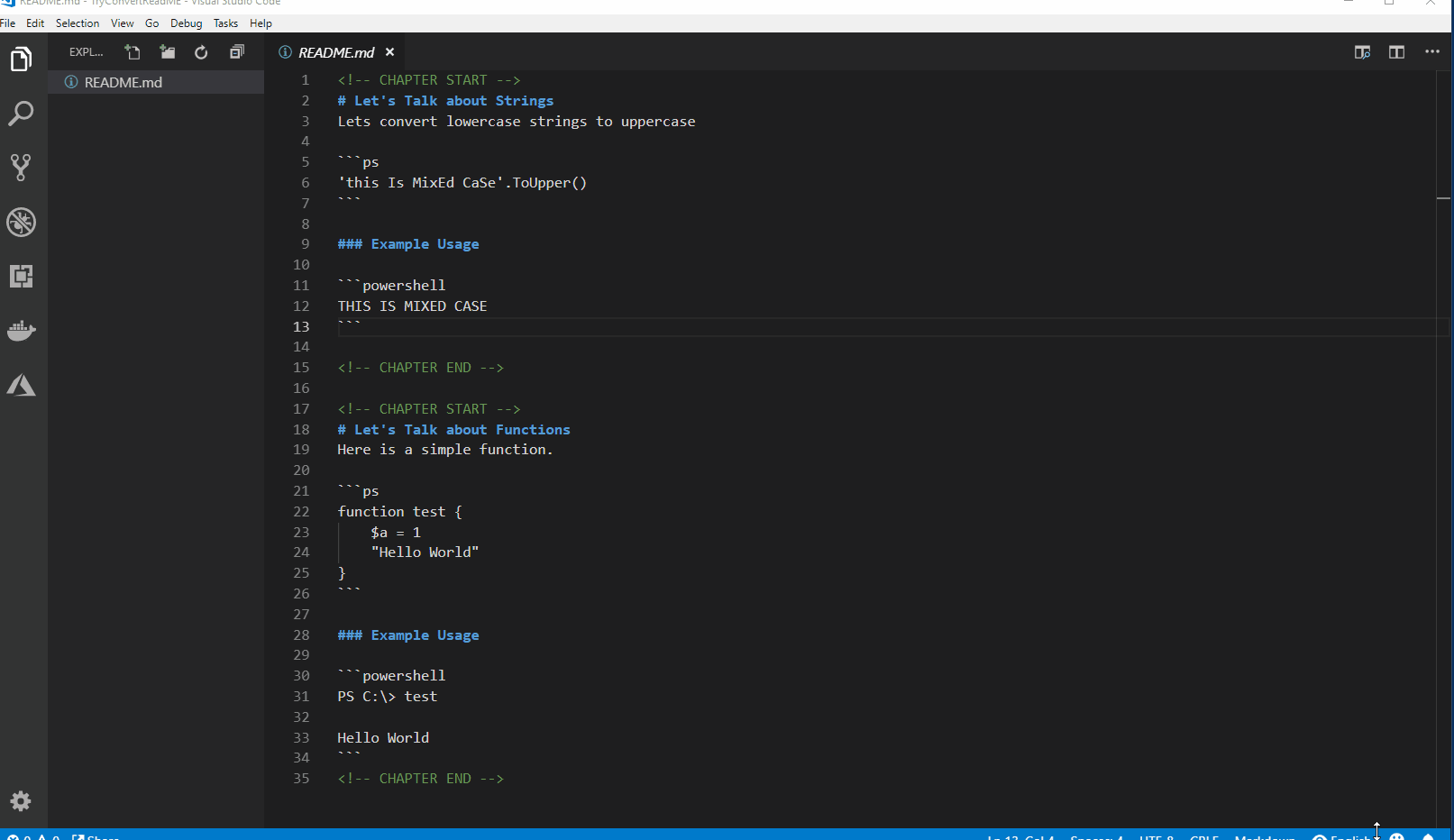Check out this Two for One PowerShell code
Convert From Readme.md
Quickly re-purpose your markdown as input to a service like LeanPub (for self publishing), and run the PowerShell ScriptAnalyzer against your PowerShell samples in the markdown.
This PowerShell module significantly improves your workflow for authoring your PowerShell README.md
Leveraging markdown, a typical workflow is creating a README.md for your PowerShell module/scripts. Describing your functions, parameters and how they operate. Next, supplying examples of these functions in action, and followed by sample output.
While this is a great way to communicate with your audience, it causes a few problems for you, the author. First it locks your documentation into your README, making it difficult to re-purpose, for example as input to a service like LeanPub, a platform which is the combination of two things: a publishing workflow and a storefront.
The second challenge is, how can you make sure that your PowerShell examples are correct? One way to solve this is you do the double work of “testing” the code you add to the markdown.
This module improves that with two simple additions to your markdown authoring.
Fenced code blocks and Chapters
Fenced code blocks
Fenced code blocks let you create highlighted coding in your README. You can create fenced code blocks by placing triple backticks ```.
Syntax highlighting can be done with ```ps. For example:
```ps
function test {
param(
$name
)
}
```
Becomes this:
function test {
param(
$name
)
}
Chapters
In markdown you can have comments, they take the form of <!-- -->.
Let’s leverage that with <!-- CHAPTER START --> an <!-- CHAPTER END -->
Wrapping sections of your markdown with these enable cool automation opportunities by becoming “fenced chapter blocks”.
Where are we?
By continuing to use fenced code blocks, and adopting fenced chapter blocks, next level automation can be achieved.
This module reads your markdown and when it finds these blocks it extracts two things. First it creates a manuscript (ready for LeanPub), by creating a manuscript directory and placing “fenced chapter blocks” in numbered chapterNNN.txt files, including a book.txt
Then, it pulls out the PowerShell code and runs the PowerShell ScriptAnalyzer on it, reporting any issues.
In Action
Running the ConvertFrom-Markdown on a markdown file does a few things. It extracts the code in the fenced code blocks and runs the PowerShell ScriptAnalyzer against it
The Analyzer

And, it extracts all the fenced chapter blocks into the manuscript director, ready for shipping to LeanPub for publishing.
The Manuscript
Here is the extraction of the fenced chapter blocks ready for your book publishing.

A Short Video
Of the PowerShell In Action:

Summary
Re-purposing effort makes us more agile, improves cycle time (from idea to customers using it). This module bumps you up to the next level.